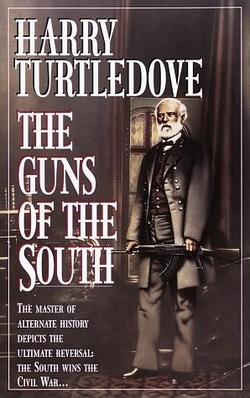Earlier this week, Cynthia Kuhn wrote a fun post at the Henery Press blog: "Professor X, In the Conservatory, With a Book," which looked at many different ways to read, places and times to read, and even types of books to read, or maybe the better word there would be editions or conditions, since she talked about the differences between brand new books versus used ones. I was struck particularly by Cynthia's observation that "many people are fond of reading in bed, snuggled under a cozy blanket with a book to send you gently off to dreamland. (Or, if you’re like me—routinely jarred awake when the book falls onto your face—not so gently.)"
I read each night before going to bed—and yes, more than once, I've had the book fall on my face, waking me up. (And then, instead of putting the book down like a sensible person might do, I just shuffle myself up a little higher against the pillow and settle in for a few more pages...until it happens again.)
I often find myself wishing I had more time to read—and while that was one of my first reactions to Cynthia's post, my second thought was sharper and maybe more in tune with what she was saying: I am always reading. Not only is it the last thing I do at night, it's also the first thing I do in the morning—scanning the top news stories from Washington Post on my iPhone there in the darkness, and then later reading the paper itself, and sometimes sneaking in a few pages of whatever else I'm reading in between parts of the morning routine. One of my New Year's Resolutions this year has been a chapter a day of War & Peace, as I've mentioned before, and I'll sometimes knock that out first thing, then throughout the day, it's reading at every turn—though not always traditional kinds of reading, I guess: emails, Facebook status updates, stories linked to those FB updates, blog posts here and there; then the stories and essays and books I'm reading as part of lesson prep for class, and the student essays and exercises that I'm grading, of course; and somewhere in there, some reading for myself, dabbling in any number of stories and essays and books I have in various corners of my life.
I read in in bed, at the breakfast table or standing in the kitchen, in my office, and (yes) in the bathroom. I have read in the spare moments while waiting to meet someone or waiting at other appointments (haircut recently, for example). I've even read while waiting at stoplights—pulling out my iPhone and opening the Kindle app to sneak in a few pages; we're in Northern Virginia, after all, and that's a lot of time that could be, should be, used well! (No reading while the car is actually in motion, of course, at least not while I'm behind the wheel—though you won't catch me in the passenger seat or on public transportation without a book nearby.)
While I could go back through that list and those moments above and qualify that much of it isn't what I want to read, reading solely for pleasure—and isn't that at the core of the wish for "more time to read"?—I realized looking around today that I've actually surrounded myself with reading that's not assigned and not part of daily chores and routines (not part of staying plugged into email and the web), reading that is, in fact, just for me.
Maybe it's the distracted nature of our lives these days, but I'm usually juggling several books at one time—even not counting those I'm pacing out on my syllabi for class. I've got bookmarks in several titles I'm working through, reading a bit at a time depending on what calls to me most at a given moment, and I often read aloud to my wife Tara in the evenings, so we're frequently in the middle of a story from one anthology or another—and all these books stay within easy reach.
 For example, here's what you'll find on my nightstand right now (and a hat tip to Patricia Abbott, whose semi-regular feature on this also inspired me here):
For example, here's what you'll find on my nightstand right now (and a hat tip to Patricia Abbott, whose semi-regular feature on this also inspired me here):- Ian McEwan's Nutshell
- Sarah L. Kaufman's The Art of Grace
- Tolstoy's War and Peace—both a big hardcover copy of the Pevear/Volokhonsky translation and then the Maude translation on my Kindle
- The Kindle itself—and tops on recently accessed titles, both War & Peace and Anna Katherine Green's The Golden Slipper (I taught one of the Violet Strange stories in class and I'm now reading/rereading others for fun)
- Several single-author short story collections, including Ann Beattie's The New Yorker Stories, Ellen Gilchrist's Acts of Gods, and B.K. Stevens' Her Infinite Variety (hi, Bonnie!)
- Several anthologies, including The Big Book of Locked-Room Mysteries, In the Company of Sherlock Holmes, In Sunlight or In Shadow, and The Folio Book of Ghost Stories
- The new Best American Mystery Stories anthology and the November issue of Ellery Queen's Mystery Magazine, since I have stories in each myself and want to read the stories by the other contributors (hi, Rob Lopresti!)
- Another EQMM, from December 2015, that I've already read and should put away somewhere
- Sophie Hannah's Closed Casket that Tara passed my way with some enthusiasm, even though I still haven't read the first of Hannah's mysteries with Christie's Hercule Poirot (I'm behind)
- Lisa Lutz's The Spellman Files, which I pulled out because I was considering teaching it and need to revisit again anyway, even though I didn't add it to the syllabus
And as you can see, the list quickly gets qualified and commented on and... and why don't I have more time to read?
Just to round out the listing of books close at hand, here are the ones physically on my desk from my office on campus—not counting the ones I'm reading for class:
- The first volume of the new seven-volume Collected Millar: The Master at Her Zenith, and those first pages of Beast In View really draw you right in, don't they?
- 100 Dastardly Little Detective Stories, which a friend dropped off to me and which I've already dived into
- The July 2016 and September/October 2016 issues of EQMM (hello sometimes-SleuthSayer David Dean in each of those!)
- The July/August 2016 issue of AHMM (hello to SleuthSayers Terence Faherty, Eve Fisher, Janice Law, and R.T. Lawton!)
- Karen Huston Karydes' Hard-Boiled Anxiety: The Freudian Desires of Dashiell Hammett, Raymond Chandler, Ross MacDonald and Their Detectives, which I've read and still need to review
- The Describer's Dictionary: A Treasury of Terms & Literary Quotations... which reminds me, I'm supposed to be writing too in the middle of all this reading. (Where's the time for that, huh?)
What are you reading? And when, where, how do you read?
Top of my reading list next (I promise!): any comment you leave here. :-)













































